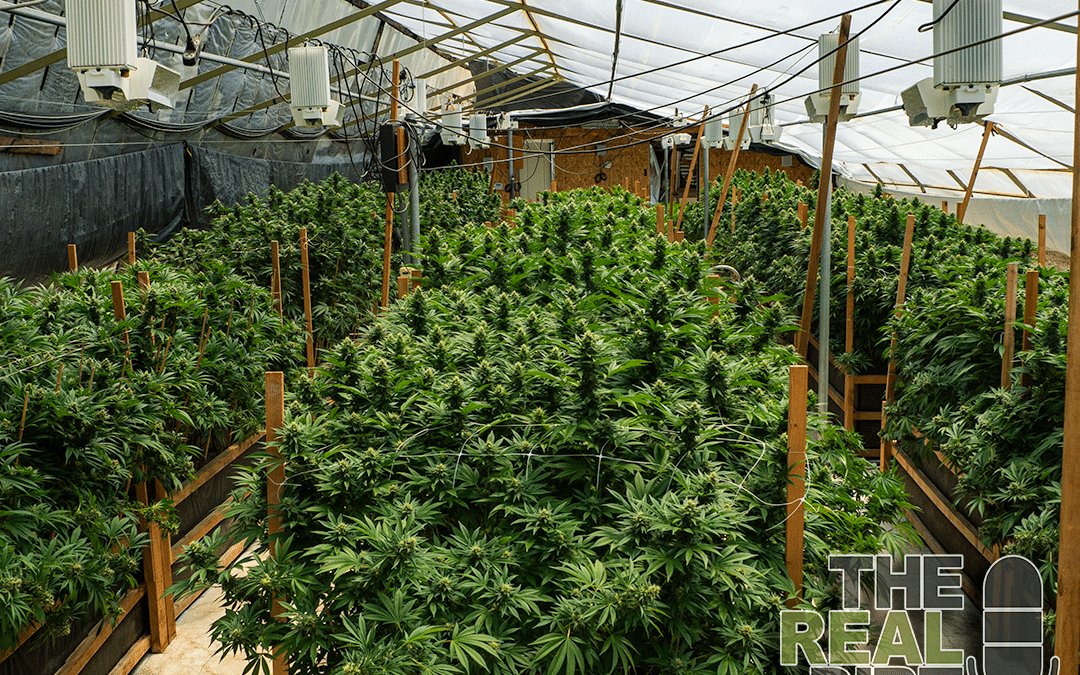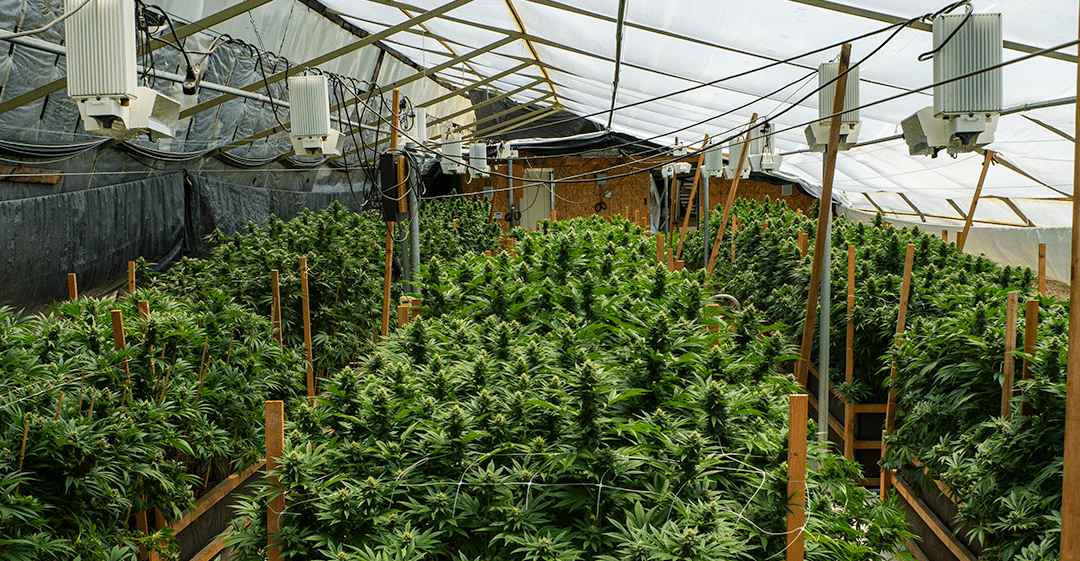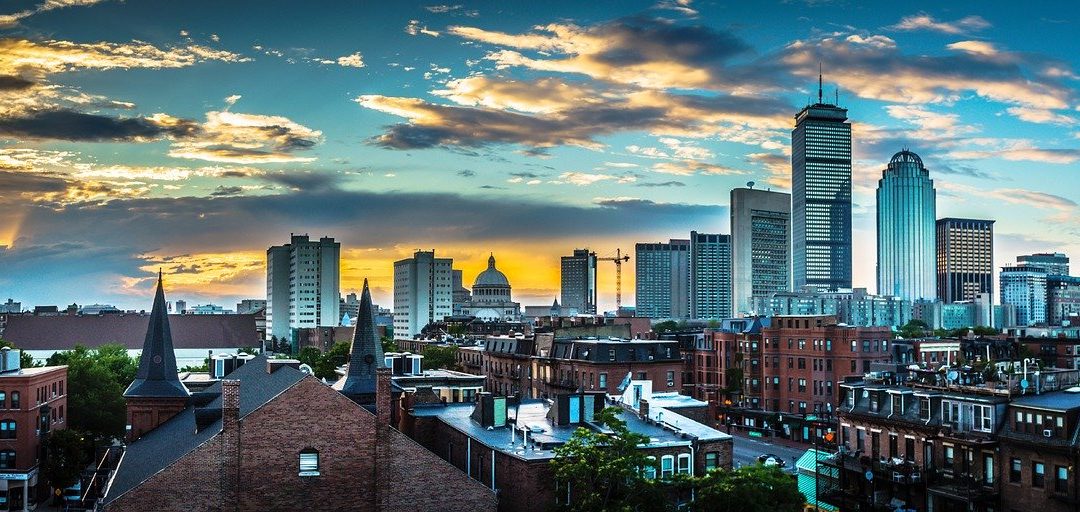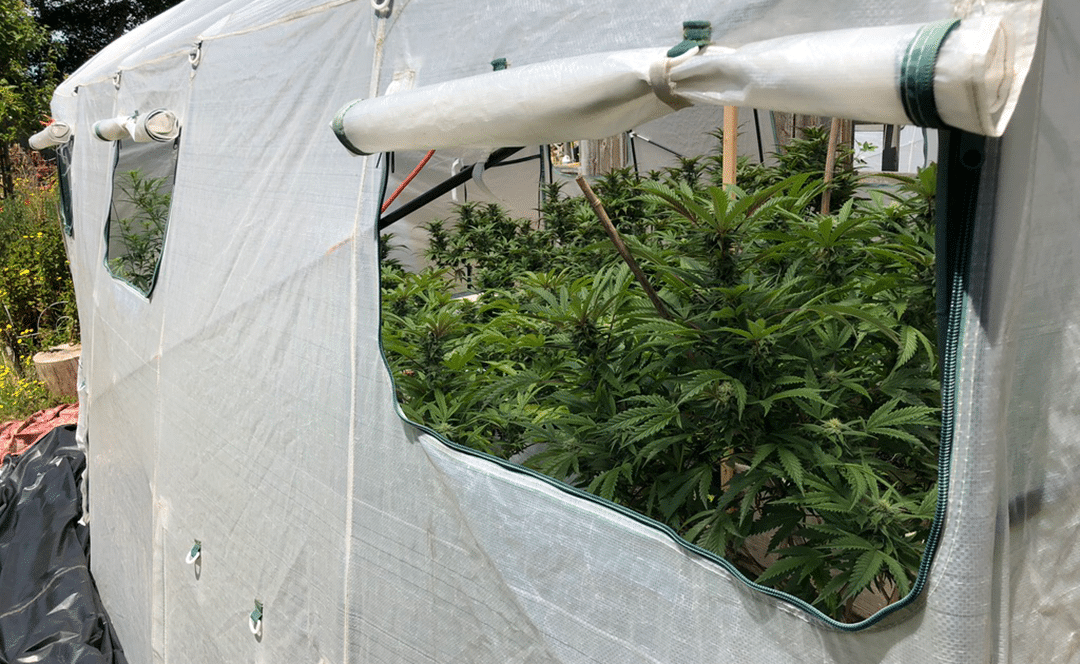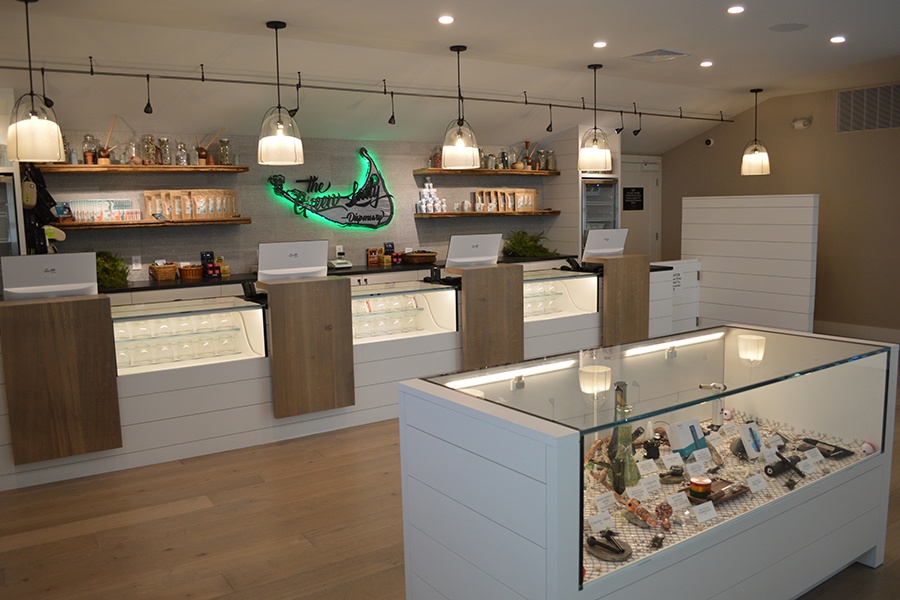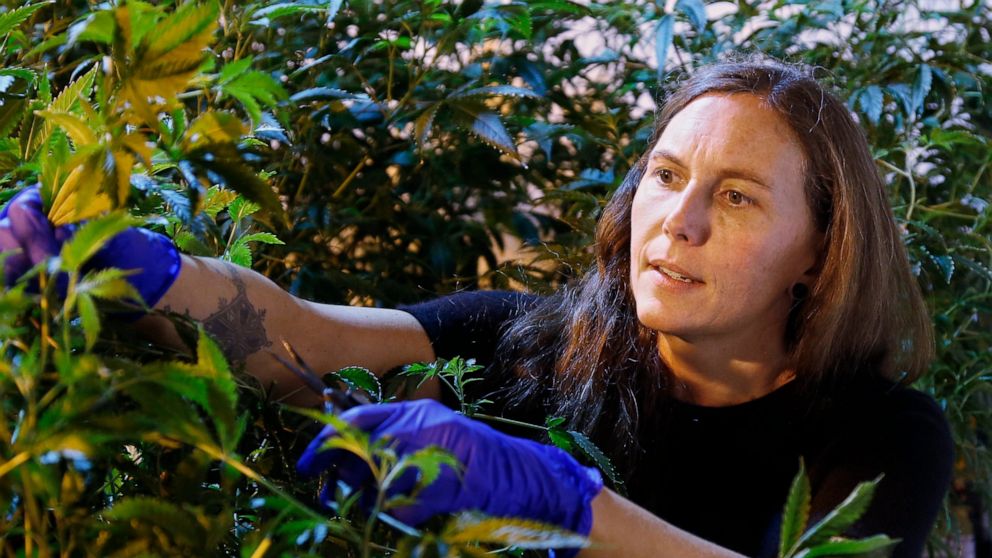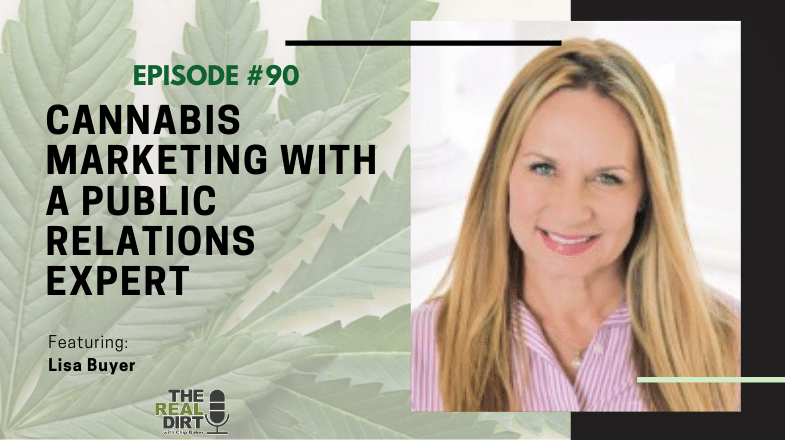
Cannabis Marketing Tips from a Public Relations Expert
Podcast: Play in new window | Embed
Subscribe: Google Podcasts | Spotify | iHeartRadio | Stitcher | Email | TuneIn | RSS
 Lisa Buyer is an entrepreneur, author, wife, mom, digital junkie, and certified yoga instructor. She is the founder/CEO of The Buyer Group, a social PR agency, and the author of Social PR Secrets in its 4th edition with a foreword by Guy Kawasaki.
Lisa Buyer is an entrepreneur, author, wife, mom, digital junkie, and certified yoga instructor. She is the founder/CEO of The Buyer Group, a social PR agency, and the author of Social PR Secrets in its 4th edition with a foreword by Guy Kawasaki.
Digital Detox Secrets is now turned podcast of Lisa’s most famous book. The pocket guide is a series of tips, interviews and insights that have been curated by top industry experts.
In this segment, Lisa shares her expertise in public relations, how to help create space, and balance in business digital life. Plus, she also provides a fresh and honest approach to face the challenges by other entrepreneurs when it comes to marketing their brands. Listen to this new episode and learn how Lisa helps brands crack the code with digital PR!
My favorite word is optimization, and we make sure that all the content that we write from a PR and journalistic standpoint is optimized with keywords that journalists and also your audience will be searching for. – Lisa Buyer
Download The Episode Companion For This Episode
Some Topics We Discussed Include
1:28 – The Buyer Group
4:16 – Associated Press
15:06 – Participating in bigger PR
17:39 – Native content
26:46 – Common misconception about PR
33:27 – Where to find them
People Mentioned / Resources
Connect with Lisa Buyer
Connect with Chip Baker
Transcript
Chip Baker: Hey, this is Chip from The Real Dirt. Once again, we are going to have an excellent conversation on my favorite subject, ganja. That’s right. And today, I kind of have an unconventional guest, my good friend Lisa Buyer, and I know I say many of these people are my good friends, but Lisa is a good friend of mine. And Lisa is not involved directly in the cannabis industry. She’s kind of like me; she services cannabis people. Lisa runs the buyer group, which is a PR group. She is also the author of Social PR Secrets and Digital Detox Secrets. Welcome, Lisa.
Lisa Buyer: Hi, Chip. Thank you so much for having me.
Chip Baker: Yeah, man. I was so glad when you reached out and booked the time to be on the podcast. We always have such great conversations. And, you know, like, what does Lisa want to talk to me about on The Real Dirt? right, and today we’re going to talk about marketing and PR in the cannabis industry. And more specifically about an article that me and my wife Jessica just had written and put on the associated press. Maybe we can explain that and get get all into that. So, Lisa, tell me tell me a little bit about The Buyer Group. Tell me what you guys do.
The Buyer Group
Lisa Buyer: Yeah. So The Buyer Group is named after my last name is Lisa Buyer and so nobody can really believe that– especially when you go to make a major purchase like a car–
Chip Baker: Baker, right, same boat–
Lisa Buyer: So The Buyer Group is a social PR agency, and how are we different than most public relations agencies is we integrate social media and search marketing into the PR strategy. So I was an early adopter of taking traditional PR and just kind of turning it upside down and integrating digital, I thought everybody would be in the same kind of pace as I was when you know, Google first came out. And we could leverage things like optimization, and then Facebook came out. And from a business standpoint, you can get exposure through your social network. But I was wrong.

And still today, 10 years later, a lot of PR agencies most are, you know, still focusing on traditional, there’s nothing wrong with traditional and a great example of traditional PR is what happened with you and how you got the coverage in Associated Press. And that the way it used to be was you pitch the journalists, you get the story and you get exposure to your audience. So what you got is like a home run in the PR world, but what we do is we then take into the PR world, social and search. That’s what our agency does, and that’s how we’re different.
Chip Baker: So, back, you know, one of the things I’m really interested in is the organic or organic traffic and organic movement and stuff like this. I mean, I have tried to because in the cannabis industry we can’t pay for advertising the same way you have some mini cannabis clients. I can’t necessarily go to facebook or instagram and pay to have my advertisements put in for the real dirt for Cultivate Colorado for Cultivate OKC, for Growers Soil, even those are all ancillary businesses of mine that don’t involve cannabis at all. Right? It’s hard for us, right?
Okay, let’s back it up a little bit. And I’m going to ask my question. So for those of we’ve alluded to this a little bit, you can look this up on our website, you’ll see that there was an AP article written about kind of people moving to Oklahoma or this kind of the state of the the cannabis economy around the country? How would– Tell us how the AP works? You know this better than these? What is the AP? What is the Associated Press?
Associated Press
Lisa Buyer: Yeah, so the Associated Press is basically a network of other media outlets. So there are basically the top tier when the Associated Press write something, it gets syndicated, nationally, whoever picks it up that’s for the Associated Press, so it might appear in the Orlando Sentinel where I live or Miami Herald or Associated Press’ associated publications. So to get something in the AP or into let’s just say there’s other syndicated types of outlets that you could get into but the AP is like a home run. So, to get that–
Chip Baker: In the movies, they call it like on the wire right?
Lisa Buyer: Yeah, and what’s interesting about this how you were sourced in that article is that you can see, and this is the big mistake when it comes to public relations is that the story wasn’t necessarily a feature on your company. They featured you in their story, their angle was about your areas becoming a hotbed and why and right.
Chip Baker: Oh, yeah, absolutely.
Lisa Buyer: Yeah. And so that’s the thing with public relations is that you want to be sourced in an article and but to have the idea that somebody has got it and it happens to have like, just a complete profile is like an add on your company is kind of a misconception and it’s not the right expectation to have with editorial like coverage like what you and your wife back for your business. That’s it’s awesome and takes a long time to get something like in the–
Chip Baker: We tried this over and over again, you’re professional, you get to do this, but like, oh, for a couple of years, we sent out letters to everybody like, Hey, we can talk about this subject, this subject, this subject, if you need an expert on anything cannabis, if you have a question and literally nobody, right would call us back. And then just never know where this guy shows up. Right. And, you know, he’s fascinated by all of the information because, I mean, you know, we’ve had numerous conversations about it. I have a high level understanding of cannabis. And you can ask me, pretty much any question. I will give you a background detailed story that you’d never even knew existed because I am fascinated with every aspect of cannabis and involved with every aspect to write. I have my finger on the pulse.
So I was always just surprised that nobody wanted to talk to me. As I read all of these articles that were reproduced all over the country, all over the world, I’m like, this is just crap. I can’t believe that they’re saying this or they’re interviewing this person, you know, and it was almost just like they stumbled upon us. Right? A little bit. And, you know, like, oh, as soon as the guy, Sean Murphy came and started talking to us he doesn’t know anything about weed, he maybe has consumed it or something in the past, I can’t speak for him. But he was truly fascinated by the conversation. And we had like, two, three hours for the interview.
And unfortunately, the story that came out was totally different from the kind of interviews we had. Yeah, right. It was, I don’t know. They just broke they found the best thing they thought could sound great quote from me, about my landlord going on vacation, which means I thought I probably had other bit great quotes, but they like that one for some reason. Right? So you do this professionally? How do you get that media person to like say the things you want them to say about you, just like you were saying, it’s not a feature on yourself, but it’s you just featured in their story.
Lisa Buyer: Yeah. Well, I mean, one way is the clients we work with, we recommend doing at least one newsworthy press release a month. And that’s just something that you can distribute as a pain distribution on the wire. So that gets put out in Google News. And then then journalists subscribe to certain categories. So you know, there’s a category for CBD and cannabis. So anything that any news that comes out, they subscribe to it, they kind of scan it and at least you’re staying in front of them as an expert source. They might not think that your news is news for them, for their audience. But what we try to do it as a journalistic style.
So we make sure that what we’re reporting on, and what we’re announcing, on behalf of our clients is newsworthy, and has a trending angle that might be trending for, you know, maybe it’s Black Friday depending on the, or if it’s CBD day, or something like that, or cannabis month tying in something newsworthy. But staying in front of a very curated list of journalists that are reporting on, basically, stories that would be relevant to your audience to your brand’s audience. So it doesn’t have to be a big list, it could be 10 or 15 of your top, top journalists that you know, are covering your angles, and then the pay distribution takes care of the masses. So it gets you on Google News. And we, my favorite word is optimization, so we make sure that all the content that we write from a PR standpoint, journalistic standpoint is optimized with keywords that journalists and also your audience will be searching for.
So I’m sure that AP article is in Google, Index and Google, it’s very high authority source. So it’s going to outrank anything. And you know, when it comes to organic traffic, so you’re talking about organic, which is PR would be considered organic. And then there’s the paid side advertising side. So that would be Google Ads. That would be you know, Facebook ads, that would be, you know, traditional ads. It used to be PR and advertising where like church and state like that you didn’t really cross over.
Today is it’s more blended. So we do pay campaigns for the clients that we can, but it used to be like, we’re just 100% organic, and we’re trying to get our clients in the news. Third-Party credibility is the best type of credibility; it’s considered like eight times more valuable than paid; anything paid that you could do. So even if you could do paid, you still want to do PR because it helps in your SEO, it helps in your credibility, it helps on public perception. So you want to get to those audiences through those third party outlets, whether it be the journalist or it might be through something that would be in a TV or podcasts or anything like that.
Chip Baker: So the title of the article on in Jessica was called something like, People Move to the Bible Belt to Avoid High Cannabis Taxes, or something like that, right. And I don’t think we said any of those things in any of the handbook, and you know, but that was the hot topic, bible, belt, cannabis and taxes. Right. And, and that’s why it really went everywhere. I think. I mean, you went everywhere. New York Times, San Francisco Chronicle, like it went everywhere.
Lisa Buyer: It might be It picked up again like, they resyndicate things, and it does really well. So there’s a chance you’re gonna still see the pickups coming,
Chip Baker: But we’ve already seen like, you know, the added benefit of it, we’ve gotten multiple phone calls, we’ve done some pretty good business immediately afterwards. Like it was really great for us, you know, the, the credibility that you’re just quoted in something like that. I know, it’s odd, because I don’t see it as–guy like Sean Murphy, don’t get me wrong, but I don’t see it as the best article and I’m sure it was edited out of his hands. You know, it doesn’t really scratch the surface about what’s going on the cannabis industry in economy. But because of all that, I’ve had two other different like, pretty, you know, big podcasts people call me up with hundreds of thousands of listeners wanting to talk to me about exactly.
Lisa Buyer: Exactly. So that is the perfect example of momentum that takes place when you get one, and it doesn’t even mean you got a home run, okay, you got a home run with this AP. But let’s just [inaudible] in getting home run, let’s just say it’s first base and you were podcast that was very niche and go for it. Let’s just eat that–
Chip Baker: Like The Real Dirt podcast.
Lisa Buyer: Yeah. And let’s just say you or you got picked up in, you know, maybe it’s just a local paper, that is typically the path. Typically you don’t come out of the gates getting a home run, but if you do, right. But typically the path is you start local, you start on small niche types of publications or outlets. Then somebody from New York Times or USA Today that’s covering that beat hears that and it’s like, Hey, this is one of my expert sources I’m going to use for this story or this is an angle I came up with, with a Google search. They see your press release, and you know, talking about you just expanded to, you know, this area and this, here’s why, you know, you can be your brand journalist, which is fine actually, right now, by having this podcast, you’re your brand journalist. But you know, so this is an example, podcasting is a great example of you can have your show, and create and control the message, or you can also pitch to be a guest on somebody else’s podcast. And that is, either one of those is considered, you know, what I consider as public relations and third party credibility and you’re controlling your message when you have your show.
Chip Baker: Now, most people consider public PR is it’s they don’t realize how much is behind the scenes of it. Right, and some people even think that it’s unfair, the way that the situation’s manipulated but you know, it’s just the system that we that we are all working in. Right you have some like, hacks for the cannabis industry on how they can participate in this bigger PR industry that we seem to be restricted from?
Restrictions for Cannabis Industry to Participate in Bigger PR
Lisa Buyer: Yeah, well, I mean, whatever size company you are, you could be just starting out, you could be doing this just for your personal brand. Public Relations is accessible to any budget, any brand. And you don’t have a budget for it, you can do it in house, if you have the budget for it, you can outsource. But what I would tell anybody is, you know, focus first on your PR, create your list, you could create a list right now of your top five, doing a Google search of like, who’s covering your brand, who’s covering your industry and where and just start out really small and very focused.
Public Relations is accessible to any budget, any brand. – Lisa Buyer
The beauty with public relations and doing your own even if you start writing a blog and write an article once a week or twice a month and that article, then you send it out to the different journalists. You could do that on your own. And then we’ll eventually, you know, start following them on social media. Create a Twitter list for the journalists that you’re following. These are some of the things we do for our clients. But you can also do it on your own. So when you can’t advertise, it stinks because you can’t put that layer on top of public relations, like a lot of other brands and industries can do. But it doesn’t mean it doesn’t do anything like doing some sort of PR. In some sort of what we’re talking about right now when it comes to PR is media outreach and try. The goal that we’re talking about right now media outreach, with the goal being to get picked up by a publication, I can’t remember, did the AP article have a link back to any of your sites your domains?
Chip Baker: No, it didn’t. It did mention you know, The Real Dirt podcast and we got significant amount of traffic over that and did not however mentioned Cultivate Colorado or Cultivate Oklahoma City. Yeah, didn’t really mentioned my– and I tried to I tried every time I spoke, I was like cultivatecolorado.com.
Lisa Buyer: Yeah. Well, I mean, if you could go back with the AP might have a little bit of pushback. But whenever we get articles for our clients we always ask for a link back because that’s gonna help get you like super high quality referring traffic back to your site and also helps in SEO. So coverage that you get will help you and if you get a link in SEO if you don’t, I mean, you see the result of the AP [inaudible] link, right.
Native Content
Chip Baker: Yeah, absolutely. It was great. You know, we have, so let’s talk about one of my favorite subjects native content, which is content that you create yourself that is supposed to mimic or look like news stories. And this is mostly what I’ve done, but none of it really has been as successful, right? Or, I mean, people read some of them, but how do you crossover from that, you know, to make that native content appeal and look like it’s real?
Lisa Buyer : Well, I mean, one is I have, you know, I could take a look at it, but I’m coming at it with a journalist type of approach. So, you know, here’s what I tell everybody on my staff is that we’re, we’re not marketing. We’re not talking like a marketer. We’re not trying to sell something.
Chip Baker: Right.
Lisa Buyer: If it doesn’t sound like a title, like a headline, you would see in the Wall Street Journal or USA Today; then it doesn’t have like a hook leading angle, if it’s a truly newsworthy then it gets the attention of our audience.
Chip Baker: That’s great advice because so many so many times it turns into a sales letter of some sort, right that really is great advice is to make it news worthy, even if it is native style content.
Lisa Buyer: Yeah. Another tip is to include relevant data, those statistics, reports, surveys, even if it’s your own data, that’s another everybody is looking for some sort of like a number or figure turning in an infographic making it super visual, adding an image or adding a video to what you’re doing. You know, people are would rather watch a video, they’re getting lazy, they don’t want to [inaudible]. So creating a YouTube channel and making content that is going to be how to type of content or there’s so many different ways you can slice it or dice it.
Speaking of organic and the reason why we call The Buyer Group, a social PR agency and not just a PR agency, is because we take Social Media and leverage it into the strategy. And so it used to be kind of like dialing for dollars, like we would have all the journalists that were pitching, we would have their number, and we would call them and Hey, did you get my press release? Whether it was mailed or emailed like back in the day, and just think about it, like, who has a landline? How do you look up somebody’s mobile number? Journalists are operating off their mobile smartphones. There, they don’t have a listed number. So, you know, an email. I mean, even the AP writer, I would be interested to see like what email he used because even they use [inaudible]

Chip Baker: I believe Twitter is how we really got like Kevin contact with the guy.
Lisa Buyer: Exactly. Yeah. So the new media relations today is reaching out through Twitter, reaching out through DMS on LinkedIn and cultivating relationships through social media because that is the new type of the new media relations. So we’re very hyper focused on your Twitter,your social media network, whatever network that your audience is on.
So making sure that it’s optimized making sure that you have a Twitter list following, let’s just say certain reporters or making sure that you’re following and interacting with like, forgiving. So, you know, this guy, Sean, before he actually came out with a story and you were talking to him, if you were following him on Twitter, and like sharing some of his stories that he was coming out with, he’s gonna be like, they’re trying to get, you know, make a name for themselves, too. From a personal branding standpoint, all these reporters the more exposure they get, then somebody else wants to hire them, right?
Chip Baker: Yeah, though, some of the best advice I’ve had about contacting reporters is to make sure that you’re tell them that you’re trying to help them that it’s a service you’re providing to them for free that you don’t want any glory. And eventually like you’re helping hand it’ll lead to a positive benefit for you. Haven’t quite worked for me, but maybe it was Sean. I mean, me and Sean had great conversations, you know, and I am truly disappointed at the awful news coverage and media and facts about cannabis. I hope he does call me in in the future. You know, ask for some clarifications on some this and that.
Lisa Buyer: Yeah, I mean, I would cultivate that keep going with that relationship for sure. And that, [inaudible] maybe he knows somebody that’s writing a story for another time move on angle that [inaudible] you as a source. So I would definitely send them an email or however you guys are communicating. Hey, great story. Thank you so much for thinking of me if you know any of your colleagues that are writing and need an expert in cannabis, please, if you could refer me I would be greatly appreciated. Is there anything I can do for you?
Chip Baker: Absolutely. And big thing I believe in business and in life is making friends.
Lisa Buyer: Yes.
Chip Baker: If you can be friends with people that you do business with, then man, you’re in the best of circumstances. It’s also I think the number one way to gain customer loyalty and develop like real customer relationships is man, be friendly, be friends with everybody, and then they want to talk to you.

Lisa Buyer: It’s true. I mean, the new funnel, the new marketing funnel, is when somebody becomes a customer, does that mean that Oh, you’re on to the next prospect, like you really need to nurture your customers.
Chip Baker: Lifetime value for sure.
Lisa Buyer: Exactly. And public relations doesn’t necessarily have to mean getting exposure and third party credibility for your prospects. It’s also for your customers to be Hey, I know this brand or I know these people that are being quoted it makes them feel like wow, I made the right choice. It just helps solidify the relationship with your customers. When they see that you’re getting exposure, getting quoted as an expert source, or your product is getting listed as top 10 blah, blah, blah. Like a thing.
Chip Baker: Yeah, as silly as it sounds. When I started all this, Michael Lovitch and Hollis Carter, they suggested I do The Real Dirt. And one of the first things Hollis said was, are you comfortable being the guy? And I’m like, Well, what do you mean the guy? It was like, man, there’s gonna be could be a lot of attention. I think you’re going to kill this. Are you really comfortable with it? And absolutely, right. Like, I want to tell, the cannabis story.
I want to talk to my customers. I want them to come up to me and say, hey, but many people they don’t want that. And they’re embarrassed about sales or it’s hard for them. You know, to put their neck out a little bit and see if their fail is or they’re scared of failure, and we’ve got 70-80 episodes of The Real Dirt and wow, I guarantee you, they’re not all great.
But it doesn’t matter. You do have to like, stick your neck out a bit if you want to be seen. You got to ask people; you got to say, Hey, this is me, this is what I’m doing, hey, we’re here, in whatever manner. And many people, that’s their number. One problem that they have in their business is they’ve got a great idea. They’ve got a great business, they’ve got a great product, they’ve got great sales– but don’t want to tell people they’re doing it.
You do have to like, stick your neck out a bit if you want to be seen. – Chip Baker
Lisa Buyer: Yeah. And that’s why sometimes you need help you need, an agency or you need somebody to be like, this is actually news, what you’re doing. Did you know that what you’re doing right now? As newsworthy and you know, some of our clients really, that’s newsworthy, people are going to be interested in that I’m like, yeah, that’s actually like a very good angle. And that’s something that we should write about. And then so you need to get out of your own way sometimes and let other people see things differently come in and help you come up with the newsworthy angles and help you come up with the quotes and come up with something that might be right in front of you, but you just don’t see it.
Chip Baker: You know, your business is probably similar to mine. When people come in to you for the first time, they probably have some common misconceptions about what to do did cannabis people or customers in general have a are there’s some common misconceptions about PR that you could talk about?
Common Misconceptions About PR
Lisa Buyer: Sure. Well, I mean, not just cannabis. I’ll just start just common most common misconception about public relations is that it is not a short play, it is a long play, it is a long term commitment. It’s something that you never stop doing. So yeah, maybe you can’t afford to have an agency doing it for you at first, but you move into that, or maybe working with an agency, you need to pivot for whatever. And but you don’t stop, you go to plan B, a PR, and you’re always doing it. So the biggest problem, you know, misconception is somebody like, Oh, we really want to do PR, we want to try it out for three months, and we want to see what happens after three months. So that’s mistake number one, don’t even there’s no reason to just try it out. Just don’t even do it. Because after three months, and then you just stop because you’re not really sure what’s happening. It takes a while–

Chip Baker: Nothing may happen in three months.
Lisa Buyer: Yeah. And so it just has to be a long term commitment has to be a long play. And it doesn’t have to be, breaking the bank type of thing. There’s a book that I recommend called Free PR that was co written by a Cameron Herold that you could pick up and that’s like a do it yourself type of thing. Anybody could do it, you don’t need a degree in public relations. I’m not trying to minimize what you need to —
Chip Baker: The access is there now, anybody really can do it. If they like get on Twitter, get on Facebook, get on Instagram, get on LinkedIn, you can do it.
Lisa Buyer: You can do it. And you know, just like you’re doing your podcast, you’re consistent. You have your episodes that come out on the days that they come out, every week or every month. PR is the same way. So that’s why I said earlier, we recommend to our clients, it’s part of our program, one press release a month is going out consistently to Google News and journalists. Unlike advertising, this is another misconception.
Unlike advertising, where you’re controlling that the visual, you’re controlling the message, you’re controlling the call to action, you’re going to see immediate gratification for most advertisers from Google ads and Facebook ads, you will see traffic you’ll see some sort of a conversion happening. With public relations, it’s not that type of KPI. You can’t, it’s not a fair KPI to say okay, for every dollar I spend in PR, I need to see an ROI that same month and products off the shelf. Like it’s just you have that mentality. Let’s just not even talk. Okay?
Chip Baker: Yeah. Now, because it is not something that you will see return on investment immediately, you’ll have like spikes of it, you know.
Lisa Buyer: It’s there. It’s not black and white like it is with advertising. So if you spend three months on PR and you stopped so what happened behind the scenes is you’re in front of a bunch of journalists that you wouldn’t have been in front. They might happen in six months. If you stop because of what you didn’t get in the first three months then you’re gonna be like, Oh, I wish I would have kept going because this all could be this momentum. You know, could all be going but no, maybe you’ll get something once, who knows there’s there’s no way to really predict.
Chip Baker: Yeah, absolutely you just got to keep at it, man and also count those little victories because we’ve had quite a few little victories over time but nothing big like this no home run. But you know the cumulative impact of it all really does help when people ask me about something I’m like, oh go to my Instagram and they look at it and like, Oh, you got 17,000 followers. Oh, you’ve made 3000 posts, it adds this legitimacy to it and the same way with Facebook posts and you know, because social media is our free PR. That’s our free PR.
Lisa Buyer: It’s definitely Free PR you can do it your house, you could buy a book to show you how to do it. Like I said earlier, my favorite word is optimization. Use strategic hashtags to get more exposure to get that Instagram post is to get more in front of like your audience. There’s also hashtags that you can use or tags that you can use to get a journalist attention. So by tagging it like hashtag news or hashtag cannabis news or get into that stream. And so journalists are following hashtags there. They are following keywords through Google alerts and a variety of different sources that they use to follow like what’s happening in industry, but they also follow hashtags. So just keep that in mind. I know we’re kind of running out of time, but I just want to cover two other ways.
Chip Baker: Yeah,Let’s do it. Keep it up. Keep it up!
Lisa Buyer: Yeah. So influencer marketing is one. So using other people that are influential, so the media would be– We put the media under the category of influencers right there, one for influencers. So then, there might be two or three other types of influencers, that you can have in your– as part of your strategy to help get the word out and help maybe publish things on their Instagram and tag you and things like that. So that’s one and then the second is so podcasts like, obviously you can be a host or you can be a guest. But you can also sponsor podcasts. So that’s one way to kind of get around the getting exposure. We’re not on it. You’re not hosting it, but you’re sponsoring an episode or sponsoring a certain part of the of the podcast.
Chip Baker: Yeah, we do sponsorship here at The Real Dirt. So if anyone’s ever interested in a sponsorship program, please ask us here at The Real Dirt you can contact Travis with therealdirt.com. Shameless. This has been such a great conversation today. So half of my listeners are in the cannabis business. Half of those people you work directly in the cannabis business.
This has been a really great episode and it’s really made me think about how much you know cannabis people need this other resources. That they don’t have this other encouragement that they don’t have. It’s often hard to find real, legitimate and professional people like yourself that will shoot people straight forward and not just say, Oh, yeah, yeah, I’m gonna take your money, Oh, I’m gonna take your money. And you know, that’s a the industry is kind of plagued with that. But I really thank you for joining me today, if people want to reach you, how do they reach you?
Where to Find Them
Lisa Buyer: Well, you can go to thebuyergroup.com and that’s my website for the social PR agency. You can also go on Amazon, you can buy my book called Social PR Secrets and the whole book is basically about optimization and how to get free organic traffic and using PR and social media and SEO.
Chip Baker: Actually I can’t believe I haven’t read your book yet. I will order it today.
Lisa Buyer: It’s extremely actionable. So you don’t have to read the whole book to get something out of it. You can be like, oh, all I need is to read the Facebook for PR chapter. The foreword was written by Guy Kawasaki, which I’m super proud of. So reach out to The Buyer Group or an Instagram Lisa Buyer.
Chip Baker: Awesome, Lisa. Well, thank you for joining us and listeners, thank you for joining us on another episode of The Real Dirt. Thanks again Lisa.
Lisa Buyer: Thank you!
Subscribe & Review
Thank you for tuning in to this episode of The Real Dirt. Don’t miss an episode, click here to subscribe on iTunes and let me know what you love about this show.

